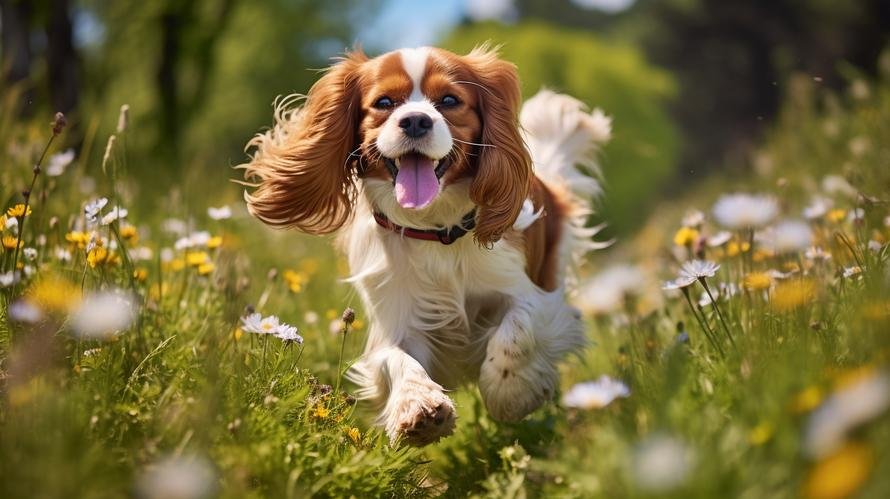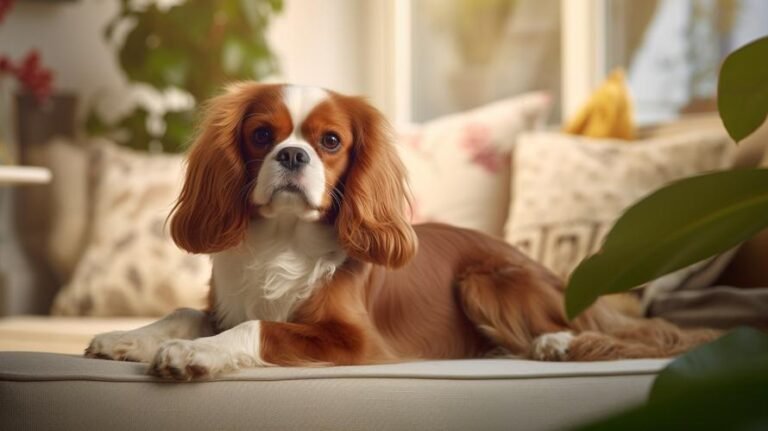What if I told you that feeding your beloved pet, a Cavalier King Charles Spaniel, with specified dog food could enhance its lifespan? Sounds intriguing, right? Prepare to be enlightened as we delve into the world of pet nutrition, focusing on the unique needs of this specific breed.
Cavalier King Charles Spaniels are undeniably adorable. Their striking appearance coupled with their personable nature makes them a popular choice for pet owners around the globe. However, being a specific breed, their dietary requirements are quite unique. Feeding them with a breed-appropriate diet can significantly boost their health and vitality. Now, wouldn’t you want to fetch the best for your furry friend?
Before we explore the ins and outs of specialized dog food, let’s get to know this breed a bit better. A Cavalier King Charles Spaniel is a small but sturdy breed that typically weighs between 13 to 18 pounds. They are known for their silky, wavy coat and expressive, soulful eyes. These cheerful and loving dogs have a lifespan of around 9 to 15 years. But here’s the catch: they are susceptible to certain health issues such as heart diseases, hip dysplasia, and eye conditions that could be mitigated with the right nutrition.
So, you see, while no law dictates that a Cavalier King Charles Spaniel must eat breed-specific dog food, doing so can offer immense benefits. Specialized dog food is typically created under close vet supervision, ensuring that all the breed’s nutritional requirements are met. Ranging from a balanced ratio of protein for muscle strength, to fibers that aid digestion, to certain vitamins that maintain coat quality, the list is comprehensive.
A key factor influencing these dietary needs is the breed’s energy levels. Cavies, as these dogs are affectionately termed, are agile with moderate energy levels and enjoy regular exercise. Therefore, they require a diet rich in proteins and carbohydrates to maintain their active lifestyle.
Moreover, these dogs are genetically prone to obesity. Hence, the caloric intake has to be monitored closely. Breed-specific food comes in handy as they provide balanced nutrition without excess calories, keeping your pet’s weight in check.
Another shining advantage of specialized dog food is the size and shape of the kibble which is designed with a precise breed’s bite-size and strength in mind. This allows your Cavies to pick up, chew, and digest their food effectively, helping to increase nutrient absorption and prevent issues related to bloating or indigestion.
The unique nutritional composition of these special foods also help in addressing breed-specific health issues. For instance, specially formulated foods for Cavaliers often include ingredients like taurine and L-carnitine, which support heart health based on their predisposition to heart diseases.
However, choosing the right food for your spaniel requires some additional considerations. Puppies and adults have different dietary requirements, with puppies needing more protein for their growth. Make sure to consult with your vet about your pet’s age, activity level, and health condition before picking a food.
Furthermore, it’s crucial to understand that not every Cavalier King Charles Spaniel will need a specialized diet. If your Cavies are in good health and your vet feels their nutrition is on point, there’s no need to tinker with their menu. After all, if it isn’t broken, there’s no need to fix it.
In conclusion, a Cavalier King Charles Spaniel doesn’t necessarily need special dog food, but opting for one can offer a host of benefits. It’s worthwhile to mention again that owning a dog is a big responsibility, which includes providing them with a nourishing diet that caters to their specific needs. The recipe to your Cavalier’s long and healthy life might just be hidden in a bag of breed-specific food.
So let’s give our furry friend more years of pouncing, playing, and endless face-licking. As they lick that savory kibble off their bowl and wag their tail with glee, remember the incredible difference your choice has made. Because at the end of the day, a healthy dog is a happy dog, and a happy dog makes a happy family.



